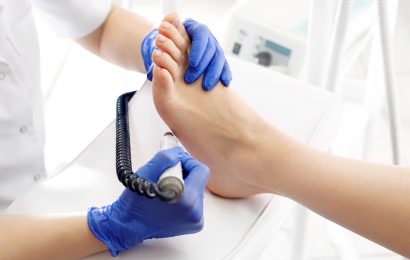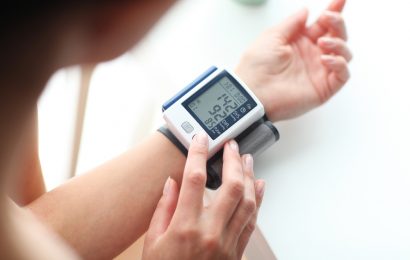“My partner was diagnosed with type 2 diabetes four years ago. Now he doesn’t even want to touch me,” a 50-year-old woman named Shelly commented on our blog. “He says, ‘You know I have this erection problem,’ but I feel unloved, ugly, undesirable. I feel he’s even avoiding kissing and hugging in case it leads to something. I can do without the sex, but I can’t take this cold lack of intimacy.”
Shelly is far from alone. Diabetes causes sexual problems for up to 75% of men and 50% of women. It’s not a life-threatening complication like heart or kidney disease, but it can damage quality of life and relationships.
It doesn’t have to be that way. People can maintain sex and intimacy with diabetes and even improve relationships, if they are willing to make some changes.
Just as diabetes may change the way you eat or your physical activity, it may affect some aspects of your love life, says Dr. Mitchell Tepper, author of “Regain That Feeling: Secrets to Sexual Self-Discovery.” “Couples have these scripts, ‘Who initiates? What do we do? How do we know when we’re done?’ Those scripts might need to change.”
Just as diabetes may require new skills like glucose checking or carb counting, it may require learning new ways to be intimate. These approaches aren’t hard to learn, but some people don’t want to try. Dr. Tepper says, “People often experience their sexuality after a dysfunction as not normal, not the same as before. They conclude very quickly that their sex life is over and any attempt to change is pointless, so why bother.”
That’s an unfortunate attitude, because keeping intimacy alive is worth the effort. It pays off in better health and quality of life. “Intimate relationships can bring people through the hard times,” says Dr. Tepper. “Sex, the pleasure bond, helps people stay together.”
Sex and intimacy
What do sex and intimacy mean? How are they the same, and how do they differ?
A working definition of sex might be: Any physical contact that brings pleasure, excitement and connection. It doesn’t have to mean intercourse. If it creates the feeling of desire, it’s sex.
Intimacy overlaps sex, but it’s different. A working definition is any contact (not necessarily physical) that brings feelings of closeness, safety and love. Neurologist and sexual medicine expert Jack Burks, MD, says, “Intimacy involves sexual feelings and actions, but also loving feelings, cuddling, holding hands, honest communication, commitment and acceptance.”
What sex is not
Sex is not a performance. Nobody is judging you but yourself, so you can stop worrying. Dr. Tepper says that sex “should be pleasure-oriented, not goal-oriented.”
Sex is not a “should” or a “have-to.” If neither partner wants sex, you don’t have to have it, but you have to talk about it and make sure both partners’ needs are being met.
How diabetes interferes
Diabetes can hurt your love life in several ways. Blood vessel and nerve damage in the genital organs can prevent or weaken erections and ejaculation in men as well as dry up lubrication, cause painful intercourse or prevent orgasm in women.
Diabetes-related hormonal changes such as low testosterone levels can take away sexual desire. You are capable of sex, but you have no interest in it. Other symptoms of diabetes, such as fatigue, numbness or pain may make sex difficult or less pleasurable. You could do it, but you don’t feel up to it.
The psychological effects of chronic illness may deter people’s sexuality. Dr. Tepper says, “Such things as feeling unattractive, blaming yourself for diabetes and depression may damage both sexual desire and function. So can stress over health, money problems and family issues.”
Medications can also damage sexual function and desire. Many medicines for high blood pressure and depression are known to interfere with sex.
Like any vigorous exercise, sex can cause blood sugar to drop. It’s hard to function with low blood sugar, and if it gets too low, both you and your partner may be afraid to have sex again.
Effective treatments
The good news is that most of the sex and intimacy problems of diabetes can be treated. Those that can’t be fixed can be worked around. Treatments and management options include the following.
• PDE-5 inhibitors for erectile dysfunction (ED). These pills — Viagra (generic name sildenafil), Cialis (tadalafil), Stendra (avanafil) and Levitra (vardenafil) — work for over half of male patients with diabetes. If they don’t, suppositories and injections are available that can produce reliable erections. Some couples work these treatments into their foreplay.
If a man can achieve an erection but can’t keep it (the most common form of ED), a penis ring can be wrapped around the base to keep blood from flowing out of the penis while still allowing blood to flow in.
Hand-operated pumps can create a vacuum around the penis, drawing blood in. Then you can wrap a ring around it. Prostheses can be implanted in the penis that stiffen with the push of a button implanted in the lower abdomen. All these approaches work well for over 80% of users surveyed.
• Estrogen rings or suppositories for painful intercourse and lack of orgasm in women. Ask your gynecologist. Dryness can be managed with commercially sold personal lubricants.
• Medication changes. If you are taking antidepressant or antihypertensive medicines, ask your doctor if they could be interfering with sexual function or desire. Ask if you could be prescribed a medication with fewer side effects. (See Resource box.)
• Get your testosterone levels checked, advises Donna Rice, RN, CDE, co-author of “Sex and Diabetes for Him and for Her.” Low testosterone levels decrease sexual desire and increase risk of heart attacks and strokes for both men and women. Rub-on gels can raise testosterone levels.
• Improve glucose control. Studies show that getting glucose closer to normal improves erection function and energy levels. Lower sugars will improve nerve function, thus relieving numbness and promoting orgasm. Exercise, lower-carb diets and better medications will all help.
Ask your doctor about sexual issues, but be aware that he or she may not be comfortable hearing it. Or you may not be comfortable talking with them because of age or gender differences. Dr. Burks says, “Ask your doctors if they are knowledgeable and comfortable with talking about sex. If they’re not, demand a referral to someone who is.”
Not just intercourse
Intercourse isn’t the only or even the best way to enjoy sex. Thousands of couples have reclaimed their sex lives by expanding their range of sexual activities.
In women, most pleasure nerves are located outside the vaginal opening or just inside, not deep inside. Best known of these is the clitoris, which starts just above the vagina and runs around it in a horseshoe shape, under the surface. You can stimulate these nerves in various manners, depending on what you both find pleasurable. Employ lubricant if vaginal dryness is an issue.
Men can be stimulated manually, orally and in other ways. Again, use lubricants, try different strokes, and pay attention to your partner’s response. Explore different areas. Most women and men have pleasures zones they have never explored or even realized. Men can enjoy sex and even have orgasms without an erection.
Not just sex
Intimacy is more than sex — it’s about relationships. Anything that helps partners feel closer and more connected builds intimacy, whether it leads to sex or not. Gary Chapman, PhD, author of “The Five Love Languages,” describes different ways to build connection and love.
• Touch. This includes sex, but also anything from a handhold to a shoulder rub to a kiss, hug or cuddle. Any loving contact is good.
• Gifts. Bring your partner something, even just a piece of fruit or handmade note.
• Acts of service. Do something for your partner, such as sweeping the floor or cooking a favorite food.
• Quality time. Listen to your partner without interrupting. Do something together without checking your phone, laptop or other electronic device.
• Supportive words. Little compliments and words of appreciation can go a long way.
People speak different “languages.” If you and your partner start using each other’s language, you may both feel more loved and appreciated. Your sex life may also improve.
Communicating about sex
Joe Nelson, a psychologist specializing in sexuality and relationships in diabetes, says communication is key to a loving relationship. “The causes of sexual problems for people with diabetes are not just physical. A doctor can prescribe medicine like Viagra or Cialis, but a couple may still need to work on the relationship before the medicine will help.”
Unfortunately, many couples don’t communicate well about anything, especially sex. Society discourages such talk. On our blog, Concepción commented, “In our culture, it is hard to talk about this issue. We have been taught that talking about sex or having sex is a matter of sin.”
Talking about sex can be embarrassing or painful. A reader named Tom who is having sexual difficulties wrote, “Talking about it is so painful. It makes me feel not man enough; it makes me feel weak, pathetic at times.”
Nelson knows such concerns are real, but says to have courage. “To build intimacy in a relationship,” he says, “we have to practice being open, honest and brave with people we love. We have to share our feelings and desires without attacking the other person. We have to learn to listen attentively to them. It does get easier with practice.”
Many couples find that talking about sexual issues is a good place to start improving communication in all areas of a relationship. You might consider getting help with communication issues from a therapist, counselor or clergy.
A good place to start is making time for love. Can you make a date, watch a movie or do something romantic like shower together, dance or enjoy some wine or tea and reconnect? Can you spend time just talking about your life together, including sexual and diabetes-related issues?
Finding intimacy
Single people with diabetes may fear they’ll never find intimacy. But people do, all the time. Here are some points to remember.
• Diabetes is part of your life, not all of it. First dates don’t require you to tell all. Tell the other person after you start getting to know each other, on the second or third date. Some might be scared off, but some won’t.
• Be matter-of-fact about your diabetes. If you’re comfortable with it, the other person will be too.
• Make yourself available. Try volunteering, taking part in community activities, church events, etc. Online dating is another good way to meet people. There are dating sites and diabetes communities on social media platforms such as Facebook.
Diabetes can interfere with sex and intimacy, but it can’t take them away from you. If you’re creative, flexible and willing to put in the time and effort, you may find yourself with more and better love than you had before.





